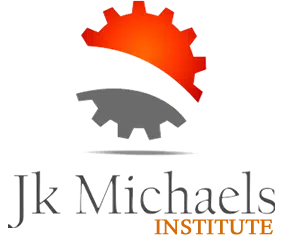MASTER CERTIFICATION IN ADVANCE PROJECT MANAGEMENT
Master Certification In Advance Project Management course at JK Michaels is a postgraduate certification program of the University of Atlanta and the American Academy of Project Management.
Overview
Curriculum
Curriculum
- 3 Sections
- 0 Lessons
- 5 Days
Expand all sectionsCollapse all sections
- MBA 645: Project Management in Enterprises.Course Description This course is designed to introduce students to the role management plays in a project’s development. In business, it is the manager who is ultimately responsible for organizing and prioritizing activities, planning projects, implementing resolutions and decisions, finding and allocating resources, budgeting, scheduling, controlling costs, evaluating projects and guiding the progress of a project toward completion. The course provides students with a hands-on learning experience that will enable them to learn what defines a project, develop project planning and oversight systems on their own, identify and implement best practices, learn the differences between process and project management, and establish operational links between the conceptual project and organizational objectives. Students will learn how to identify the inputs, outputs, tools and techniques for each phase of a Project Life Cycle. Since companies are increasingly aware that project management skills are vital to ensuring job security for all company workers, those who have mastered the key tools and concepts of effective project management can gain a significant competitive advantage in the contemporary marketplace. Course Objectives Upon completion of this course, students will be able to: 1. Identify the attributes of project proposals. 2. Describe the essential skills a project manager needs to carry out his/her responsibilities. 3. Describe the process involved in identifying needs and opportunities in business. 4. Demonstrate knowledge of project management concepts and techniques such as: constraints/limitations of project management, project life cycle, project selection methods, work breakdown structures, network diagrams, critical path analysis, critical chain scheduling, cost estimates, and earned value management. 5. Describe the stages involved in team development, and discuss some of the workplace barriers that jeopardize team effectiveness. 6. Effectively use project documentation strategies and communication tools. 7. Describe various types of project organizations. 8. Incorporate changes and/or updates to a project schedule. 9. Analyze time/cost tradeoffs. 10. Describe the project control process. 11. Perform cost performance analysis and control. 12. Use simulated cases and Microsoft Project to help plan and manage a project. 13. Appreciate the importance of good project management. 14. Discuss personal examples of effective and ineffective project management. 15. Demonstrate increased writing skills in formal presentations.0
- EMBA 601: Enterprising Leadership in Organizations.Course Description This course introduces students to the key “core competency” areas that are essential for a progressive and forward-directed career in management. Core principles will, toward this end, provide skills required to ensure maximum productivity. The basic principles include: strategic management of human capital, recruitment strategies and pitfalls, effective planning, keys to motivation, evaluation of performance, human development initiatives, compensation issues, and the appropriate implementation of incentives of performance-based incentives. Course participants will analyze the importance of the HR Triad (employee, line manager, HR manager); they will acquire the necessary tools by which to foster mutual understanding and collaboration across organizational units. Specific case studies and other example drawn from a wide range of industries and a broad spectrum of circumstances are presented in the assigned readings and in ancillary materials available to students throughout the research enterprise. Course Objectives Upon completion of this course, students will be able to: 1. Define, discuss, and apply the essential terminology, facts, concepts, principles, analytic techniques, and theories underpinning effective organizational leadership. 2. Develop their own personal leadership orientation and philosophy. 3. Distinguish leadership from management skills. 4. Understand the basic terms used in leadership research such as: Traits, Behavioral, Leader-Centered, Follower-Centered, Task and Relations Behavior, and Situational Theories. 5. Demonstrate an understanding of diverse leadership theories such as: Dyadic Role-Making, Followership, Contingency, Vroom and Yetton, as well as Participative and Charismatic Leadership. 6. Develop an understanding of leadership as it affects teams, self-managed work groups, meetings, and other cultures. 7. Understand the role leadership plays in promoting change, facilitating decision-making, and inspiring and training a new generation of future leaders. 8. Apply appropriate terminology, facts, concepts, principles, analytic techniques, and theories to moderately complex situations where leadership is required. 9. Generate methods to foster leadership activities in order to resolve organizational problems. 10. Evaluate the quality of leadership proposals by taking into account current research on the subject as well as organizational constraints. 11. Discuss how empowerment and delegation contribute to effective leadership skills. 12. Illustrate how leadership entails both the ability to initiate change, as well as help others adjust to the changing environment0
- MBA 639 Dynamics of Corporate StrategyCourse Description This course examines the fundamental theories and techniques that are used by multinational corporations to develop and implement a global business strategy needed to effectively integrate the activities of their worldwide subsidiaries. Emphasis is on the three separate components to developing a successful global strategy: developing a core business strategy, developing an internationalization strategy, and developing a globalization strategy. The course provides graduate students with an opportunity for developing an understanding of how to link human resource development and organizational learning practices to strategic initiatives. The skills and knowledge learned will enable the students to successfully prepare to meet a variety of challenges they may face in their careers. Real world examples and real business applications will be utilized throughout the course. Course Objectives Upon completion of this course,delegates will be able to: 1. Identify and explain the impact that external environmental factors have on business strategy. 2. Discern between the causes and the symptoms of global business problems. 3. Use appropriate strategic assessment tools to identify multinational company wide problems. 4. Identify and explain problems associated with global long-term strategy formulation and implementation. 5. Apply management strategic knowledge gained from textbook’s chapters reading with practical case studies. 6. Think through the strategic implications associated with solutions to business-related problems in foreign markets. 7. Create solutions to problems associated with business-related problems in foreign markets. 8. Comprehend the difficulties encountered by people working in organizations and groups in different parts of the world. 9. Critique how economic, political, social, and spatial relations have developed, persist, and change among individuals, groups, and societies. 10. Communicate ideas and principles coherently to a business-related audience through written mediums. 11. Understand the complexities in the behavior of the individual human being and the individual’s relationship with the larger world. 12. Identify various perspectives on understanding major global issues and the use libraries, computer technology, and other information resources and technologies to locate materials, credit sources appropriately and responsibly, and integrate research materials drawn from various sources.0
FAQs
Managers
Executives
Project Managers
Program Managers
PMO Managers and Directors
Training and Development Managers
Operations Directors
Executive Directors
Research and Development Officers
Team Leaders
Senior Analysts
Management Consultants
and Other Contractors
Exam Type: Closed book, Multiple choice, multiple responses, matching, hotspot, etc.
No Of Questions: 180 questions per paper, 175 scored
Exam duration: 230 Minutes
Result: The passing score is determined through psychometric analysis
Successful graduates will be prepared to move forward in a wide variety of project management-related careers, and will have gained excellent preparation for the MPM ™ Master Project Manager – Project Management – Board Certification through AAPM Global Board of Standard.
Students interested in further study may transfer courses completed with a grade of “B” or better for the certificate directly toward degree requirements for the University of Atlanta’s Master of Business Administration (MBA) or, depending on background and qualifications, the Executive Master of Business Administration (EMBA)
JK MICHAELS A PMI GLOBAL REGISTERED EDUCATION PROVIDER ENSURE BEST IN CLASS PROJECT MANAGEMENT COURSES ACROSS AFRICA AND MIDDLE EAST
Now it’s time to make the commitment to prepare for — and pass — the exam. Carving out time and securing the proper materials to study requires discipline and focus.
Pad Your Schedule
Visit the Test Center in advance so you can:
Know precisely how to get there.
Find the room immediately on test day.
Test-day tip: Arrive 30 minutes early so you have time to relax before you start the exam.
Or, you can take your Exam online.
Know Your Limits
230 Minutes – Time Allotted for Exam Completion
Two 10-minute breaks for computer-based tests. No scheduled breaks for the paper-based exam.
Prove It’s You
Make sure your ID is:
Valid
Government-issued
And It Includes:
Your photo
Your signature
Stuff You Don’t Need
Calculators
Built into computer-based tests
Scratch Paper and Pencils or Erasable Boards and Markers
Provided by test administrators
Results – Just Like That
Computer-Based Testing
You’ll find out if you passed before you leave.
Reviews
Features
- JK Michaels is a PMI accredited ATP(Authorized Training Partner)
- Earn 30 PDUs with Practical, live instructor led sessions
- Ace the exam with 30 day, 60 day study plan by experts 2000 Free exam simulation question bank
- Introduction to predictive and Agile software(microsoft project +JIRA) Poject Leadership Quotients Assessment
- Regular monthly webinars,revisions and exam support.
- Action-oriented learning through case studies,role plays ,games e.t.c






